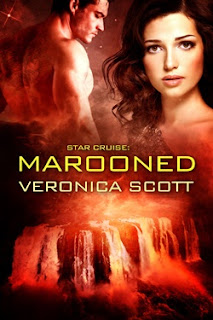My To Be Read List and I have a somewhat amorphous
relationship.
In the old days, pre-kindle, I used to go to the bookstore
at least once a week and spend delicious time in the stacks. I’d come home with
a pile of books to add to my already existing pile of books waiting their turn.
I never did get to the bottom of the pile either, because newer and shinier
titles would get released, or new books from my autobuy authors would come out.
Of course in those days such authors only released new titles once a year,
giving me plenty of time to read other people too.
I never did spreadsheets or tracking of any kind BTW. Not my
thing. Books in, books out, some onto my keeper shelves and some to the
Goodwill bin for someone else to enjoy.
 |
| Part of my sentimental collection of Andre Norton |
As I moved more and more into the ebook realm of reading, I
stopped buying hard cover or paperback books at all. So no more visible TBR on
a shelf somewhere. I hardly have any physical books in my home any more, other
than stacks of tomes for my ancient Egyptian research and some sentimental
favorites.
Certain authors are still autobuy for me – Nalini Singh,
Patricia Briggs, Ilona Andrews, our Jeffe Kennedy, Anne Bishop The Others
series.
I’ve added a few scifi romance authors like Anna Hackett,
Cynthia Sax, Pauline B Jones, Emmy Chandler, Anna Carven, Michelle Diener,
Tiffany Roberts.
(I’m undoubtedly forgetting some names, not enough caffeine
today yet…apologies)
These are people for whom I stop everything else for the
day, even working on my own novels, and just sit and read the new book.
I devote a chunk of time every week to creating my New
Releases (NR) post for new titles in scifi romance, paranormal romance and
fantasy romance. (Here’s a link
to a recent one if you’d like to see. Which golly gee, happens to have my
own new release included! But about 48 weeks of the year I’m not releasing
anything new myself.) I do limited curating of the list and I don’t even
pretend to include every single new book in all 3 genres every week. What human
can do that? And especially limit the time spent on creating the NR post so I
can still write my own books?
Anyway, I have a Process and in the process of
discovering new books every week to share with people on my blog, I find a lot
of books to read.
Some I one click right away.
No question must have that book! The books in that category I typically
read within a week or two of buying them.
Some I put onto kind of a mental TBR, but I also know I can
look back at my previous NR posts to refresh my mind about books I was
intrigued by but might never actually have time to read.
The underlying thing for me is that I’m literally writing
and talking about SFR all the time, in several FB groups, for USA Today/HEA,
Amazing Stories, Love In Panels and sometimes other sites as well. I need to
stay current on authors, books, and trends in SFR to be able to create
interesting, relevant posts for all those places. So I ‘have to’ read. Such a
hard life, right? I read very fast, which helps. I have an empty nest except
for the demanding Jake the Cat and I’m full time at this writing gig.
 |
| Jake the Cat because who doesn't love a cat photo |
So the jump for a book from Amazon to my kindle to me
actually reading it is probably only going to be two weeks at the most. But
very few books get put on that nebulous form of TBR.
The other titles I have an interest in reading sit on my archived
NR posts on my blog (because I always put a note in the post of which ones I one-clicked
or put on my TBR) and occasionally make it to the kindle and get read.
So that's my tale of how I manage my TBR List. Works for me!




















